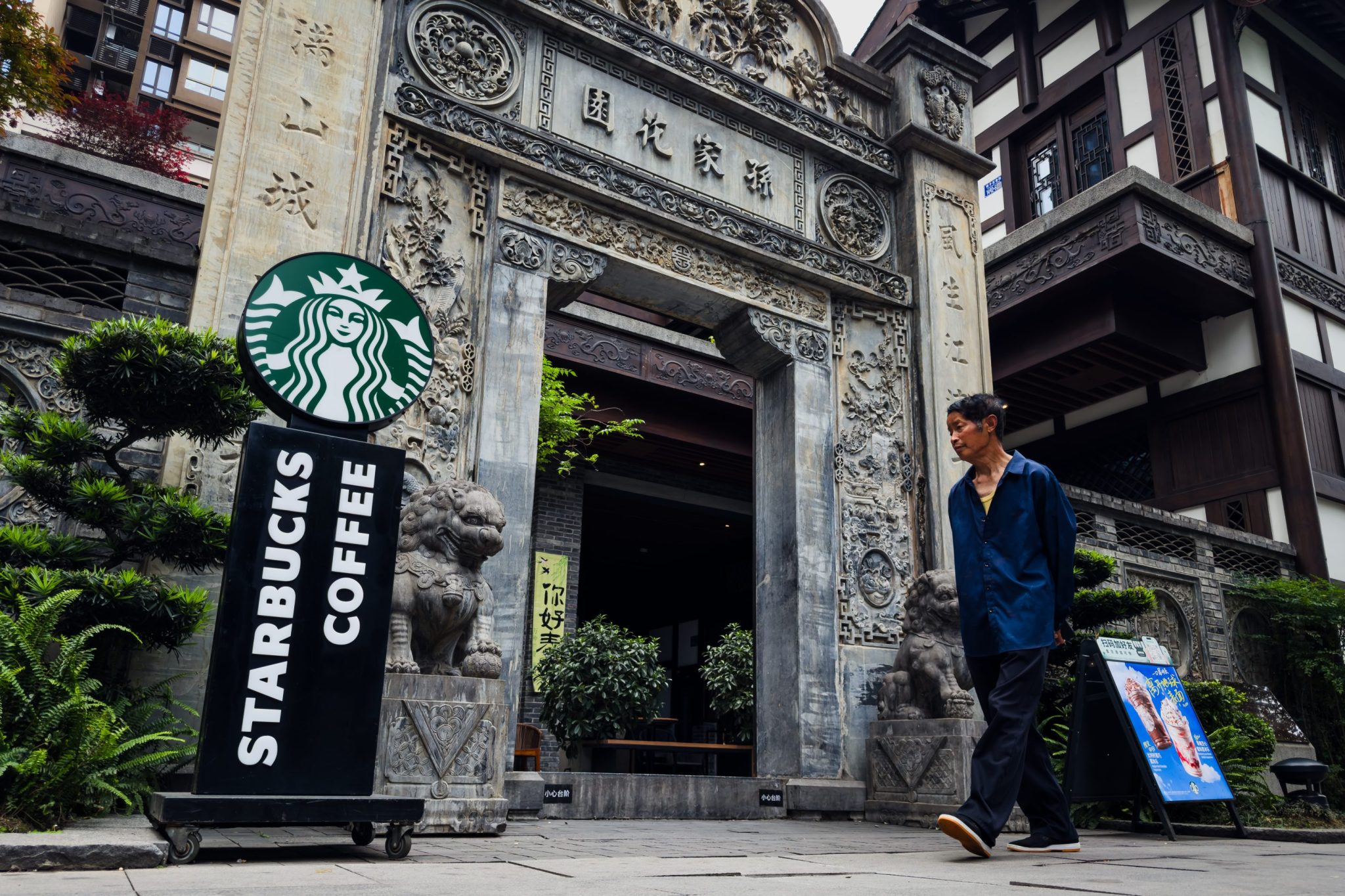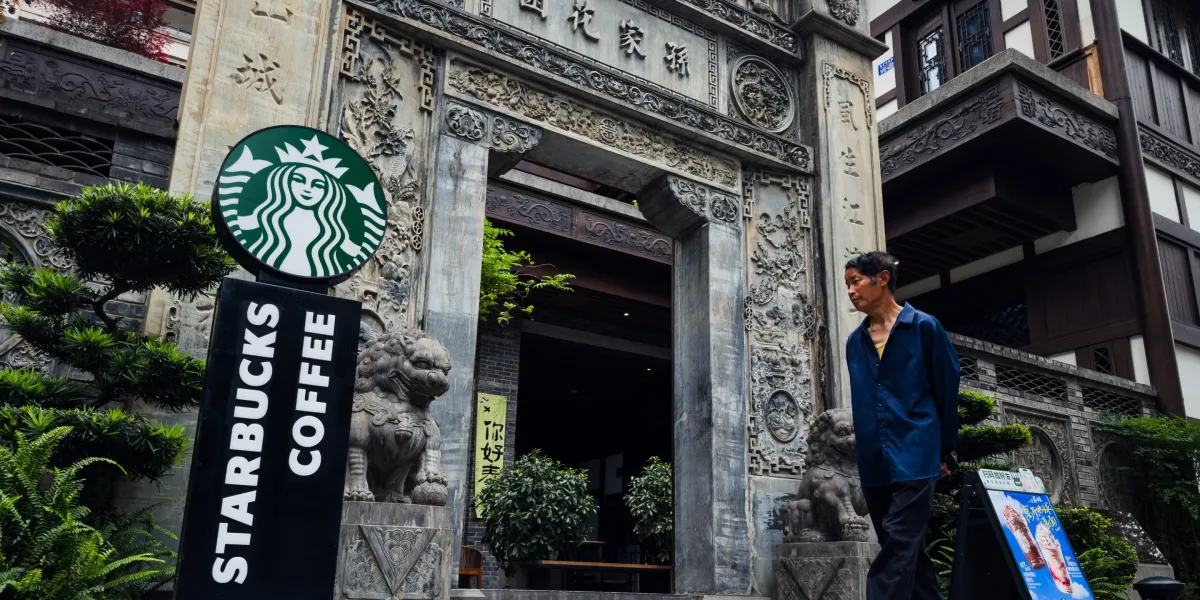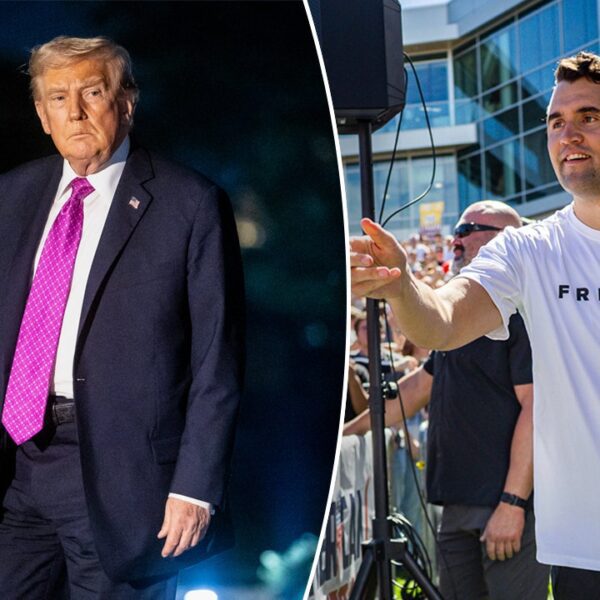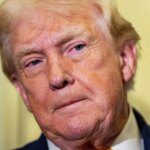
Starbucks Corp. agreed to sell a majority stake in its China business to private equity firm Boyu Capital at a $4 billion enterprise value in a bid to improve the coffee chain’s flagging fortunes in the country.
Boyu Capital will hold up to a 60% interest in Starbucks’ retail operations in China through a new joint venture with the coffee seller, the companies said in a statement. Starbucks will hold the remaining 40% and continue to license the brand and intellectual property to the joint venture.
The agreement marks the end of a search for a partner to help chart Starbucks’ next chapter in China, where it has about 8,000 stores after opening its first outlet in Beijing in 1999. However, Starbucks has struggled in recent years, along with other Western companies that have lost ground to local rivals amid rising nationalism and reluctance to pay premiums for foreign brands.
Xiamen-based Luckin Coffee Inc. dethroned Starbucks as China’s biggest coffee chain two years ago by selling coffee at one-third of its price. And while Starbucks’ store format is expensive to upkeep, customers have become less willing to pay higher prices for its drinks since the COVID pandemic and ongoing economic downturn.
“Starbucks’ store expansion has been restrained amid fierce competition from local rivals, and the deal is expected to accelerate growth with sufficient funds and Boyu’s retail experience,” said Jason Yu, Shanghai-based managing director of CTR Market Research. “Boyu needs to balance Starbucks’ brand positioning and its participation in price competition, otherwise it will harm its long-term profitability in China.”
Bloomberg previously reported that Boyu had emerged as the front-runner, and that others including internet companies could join as limited partners to help co-finance a deal.
The private equity firm is also in talks with banks for a loan of around $1.4 billion-equivalent to support its investment in Starbucks’ China business, according to people familiar with the matter.
Real estate expertise
Starbucks is the latest foreign retail business to enlist a local partner to turn around their ailing fortunes in China as a persistent property slump sours consumer appetite for everything from premium luxury goods to ice creams. General Mills, which owns Häagen-Dazs, is also working on a potential sale of its more than 250 stores in China. Restaurant Brands International Inc. is also said to be mulling a sale of a controlling stake in Burger King’s China business to local private equity firms.
McDonald’s Corp. and Yum! Brands Inc.’s KFC, have brought in local investors for their China businesses years ago, helping the fast food chains become successful in staying competitive over the years.
Boyu’s links in China is likely to have been a winning factor in Starbucks’s view. Its expertise in commercial real estate and property management—it recently bought a controlling stake in an operator of China’s top luxury malls SKP and also controls property management services provider Jinke Smart Services Group—could help the coffee chain refine and expand its store network.
“We see a path to grow from today’s 8,000 Starbucks coffeehouses to more than 20,000 over time,” Starbucks Chief Executive Officer Brian Niccol said in a blog post.
China turnaround
As part of its efforts to lure back customers in China, Starbucks earlier this year opened free “study rooms” in some of its stores there. Under new China chief Molly Liu, the chain has also expanded its drinks menu to include more sugar-free options and teas catering to local tastes, slashed prices on a slew of beverages and upped its options for customizing orders. That’s in contrast to recent moves in the US, where the menu has been simplified to boost operational efficiency.
These incremental steps have helped the coffee chain stem a sales decline in China since earlier this year, with comparable sales returning to growth in the past two quarters. Niccol expressed confidence in the brand’s long term growth potential during an earnings call last month and expected the business to enter next year “on stronger footing.”
Starbucks expects the total value of its China retail business to exceed $13 billion, including the value of licenses, according to the statement.
The coffee seller’s shares rose less than 1% at 6:17 p.m. in after-hours trading in New York. The stock has declined about 11% this year, trailing a nearly 17% advance by the S&P 500 Index.















